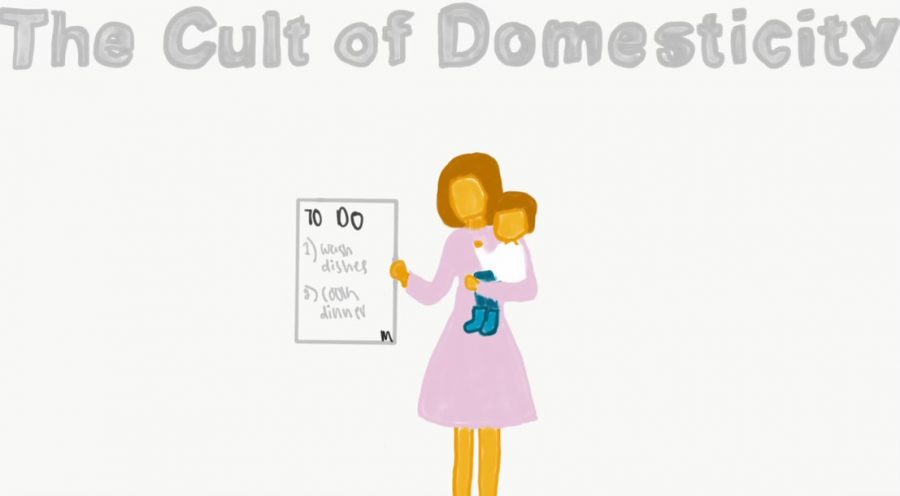Column: Women struggle to gain gender equality and COVID-19 doesn’t help
Illustration by Madison Boudreau Popovic
Women are disproportionately impacted by the COVID-19 recession.
November 22, 2020
Gender inequality is something many women are too well acquainted with. Women have fought for gender equality for countless years, but some of these efforts may be undone because of the COVID-19 pandemic. Women are disproportionately burdened by the economic downturn caused by the pandemic; it is estimated that 47 million more women will be pushed towards poverty due to COVID-19. As more women become unemployed at rates higher than their male counterparts, gender inequality will continue to grow.
The pandemic has hit the hospitality, restaurant and healthcare sectors the hardest, with women making up the majority of workers in those sectors, according to the U.S. Bureau of Labor Statistics. As a result, women will find it increasingly harder to maintain their jobs or find new work. Additionally, since some schools are closed or online, many parents have to look after their children at home. Who will take care of them? This responsibility disproportionately falls on mothers, and it almost feels reminiscent of the past when women were tied to “piety, submissiveness, and domesticity.”
And where does this leave single mothers that are now unemployed? They are struggling to stay afloat. In the United States, 15 million single mothers appear to be impacted the most by the pandemic. These mothers have to find a balance between looking for work while also taking care of their children.
It is also important to mention that Black women are most vulnerable financially during the pandemic. Historically, when recessions occur, Black women are the most negatively impacted members and are among the first impacted and last to recover.
This impact on women is not unique to the United States. Women living in poverty worldwide are at an even greater disadvantage than women in the United States. The world’s poorest regions, such as sub-Saharan Africa and Latin America, are the most affected as the pandemic makes women’s economic situations progressively worse.
With all these added stresses, a study including men and women from 38 countries worldwide found that women were subjected to stresses that men appear to be increasingly excluded from as more and more women continue to lose their jobs. In the United States, 9 million men were laid off while 11.5 million women lost their jobs. This has caused progress towards gender equality to stall. After the pandemic, it is uncertain how low the number of women in the U.S. workforce will be. Even if the labor participation of women drops only by 5 percent, progress for women will be hindered.
This decline in gender equality can be prevented. The U.S. government may be able to do so by reopening the economy and schools around the country — and keeping it open. Working mothers depend on this constant income in order to provide for their children. This will alleviate stress associated with childcare and allow working mothers to maintain their career without sacrificing it to motherhood. If the economy reopens, then schools should do the same. One cannot happen without the other if we are to effectively combat gender inequality associated with the pandemic.
Dr. Anthony Fauci warned that a prolonged economic shutdown could be detrimental to the future of the United States. In an attempt to prevent this from occurring, it is imperative to comprehend COVID-19 and ways to combat it. As the upcoming vaccines look increasingly promising, states should embrace the welcoming of Pfizer and Moderna vaccines with open arms as this is a step in the right direction, and more importantly will help further gender equality.
Let me leave some food for thought: If the United States shuts down even more, more people will become unemployed, unable to pay for needed resources and may not be able to survive. So if we stay closed, the quality of life lowers as many women can possibly become increasingly poor.
It is imperative that we continue to fight for gender equality and not allow the pandemic to regress what so many women fought to obtain. When female unemployment rises, the gender gap does so as well. This gender inequality needs to be eradicated before it increases any further.
Madison Boudreau Popovic is a first-year political science and business administration combined major. She can be reached at [email protected].


















